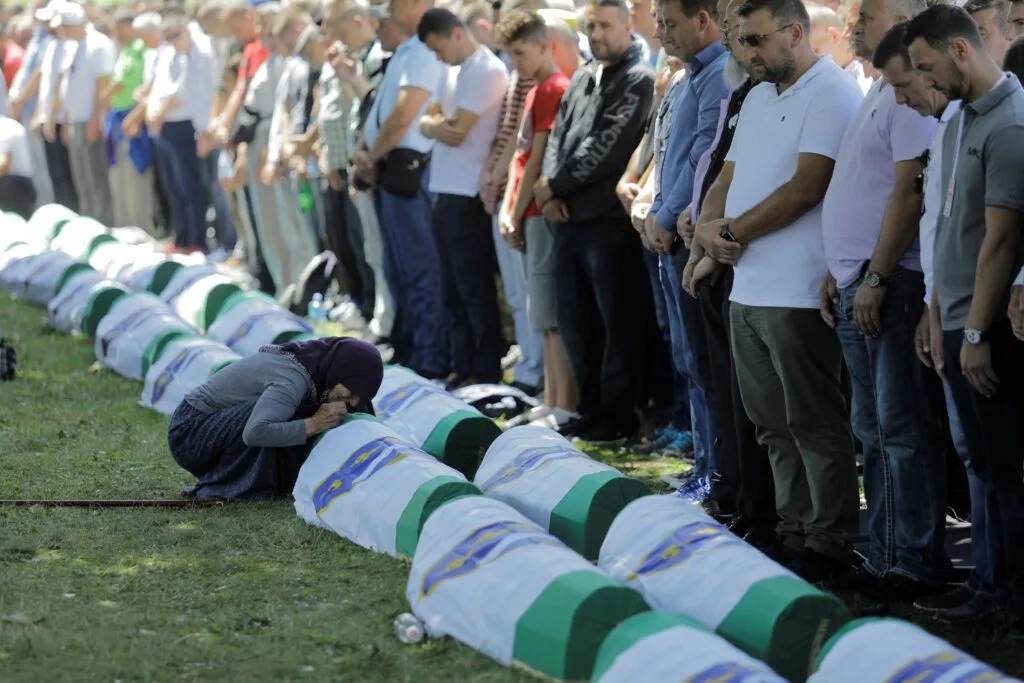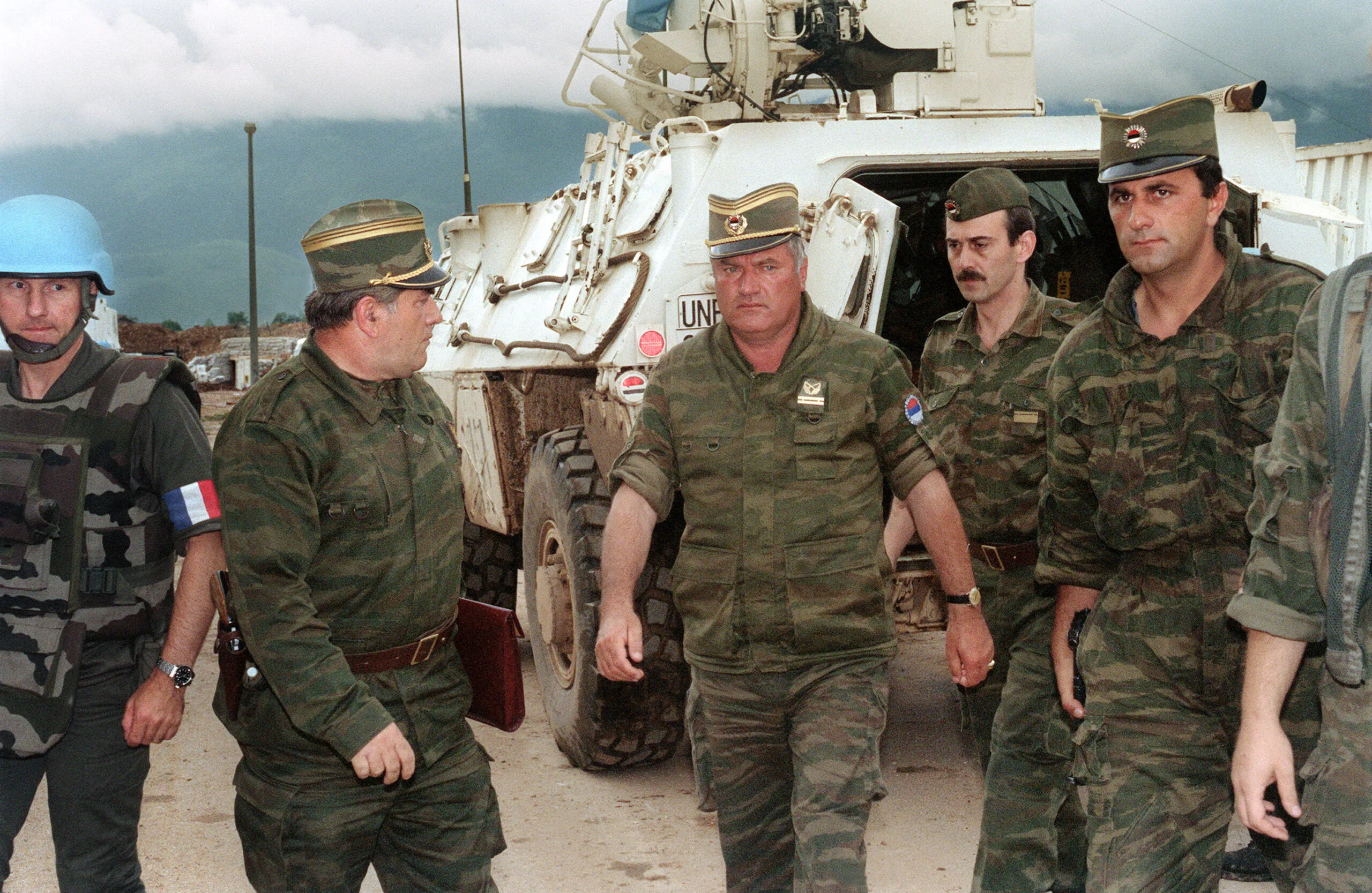On the 24th Anniversary of the Srebrenica Massacre, Bosnian Muslims Continue to Bury Their Dead

July 11, 2019
Share
Over two decades after the Srebrenica genocide, many Bosnian Muslims are still searching for the remains of their loved ones. On Thursday, which marks 24 years since Europe’s worst mass killing since World War II, more families buried their relatives — if only in pieces.
During Thursday’s 24th commemoration of the genocide, 33 newly identified victims were laid to rest at Srebrenica-Potocari Memorial Center in Bosnia and Herzegovina, alongside thousands of victims already buried there. Over 1,000 people are still considered missing after the July 1995 massacre, which claimed the lives of an estimated 7,000 Muslim men and boys.
As families gathered for the commemoration, Ratko Mladić, the general of the Bosnian Serb Army who masterminded the genocide, is serving out his second year of a life sentence in a prison in the Netherlands. FRONTLINE followed his five-year case as it unfolded in the The Trial of Ratko Mladić.
The Srebrenica massacre came three years into a brutal war that ravaged Bosnia and Herzegovina. The conflict was sparked in 1992, after Bosnia and Herzegovina declared independence from Yugoslavia. To bring Bosnian territory back under Serb control, the Bosnian Serb Army began acts of “ethnic cleansing” against the Bosnian Muslim and Croat populations.
Mladić was convicted of genocide and crimes against humanity in 2017 (which he appealed the next year), but the region still struggles to heal.
Bosnian Serb families also seek recognition for their losses. According to Balkan Insight, a plaque honoring the Serbs who were killed by “Muslim hordes” near Srebrenica from 1992–1995 was installed in the town last month, sparking controversy ahead of the 24th commemoration for Bosnian Muslims.
As the film reveals, some Serbs believe Mladić protected their families from attacks.
“The other side considers him to be a war criminal. We consider him our savior,” Mladić’s personal driver Mladjen Kenjic told FRONTLINE as he prepared to testify on Mladić’s behalf.
According to the Associated Press, no official delegations of Bosnian Serbs attended the commemoration event.
To learn more about how the case was built against the Bosnian Serb general responsible for the deaths of those buried today, and the difficulties of reconciling contradictory memories of the past, watch FRONTLINE’s investigation in The Trial of Ratko Mladić.
Editor’s note: An earlier version of this article stated that a plaque was installed to honor Serbs killed in the Srebrenica massacre. We regret the error.
Related Documentaries
Latest Documentaries
Related Stories
Related Stories
Explore
Policies
Teacher Center
Funding for FRONTLINE is provided through the support of PBS viewers and by the Corporation for Public Broadcasting, with major support from Ford Foundation. Additional funding is provided the Abrams Foundation, Park Foundation, John D. and Catherine T. MacArthur Foundation, Heising-Simons Foundation, and the FRONTLINE Trust, with major support from Jon and Jo Ann Hagler on behalf of the Jon L. Hagler Foundation, and additional support from Koo and Patricia Yuen. FRONTLINE is a registered trademark of WGBH Educational Foundation. Web Site Copyright ©1995-2025 WGBH Educational Foundation. PBS is a 501(c)(3) not-for-profit organization.





















